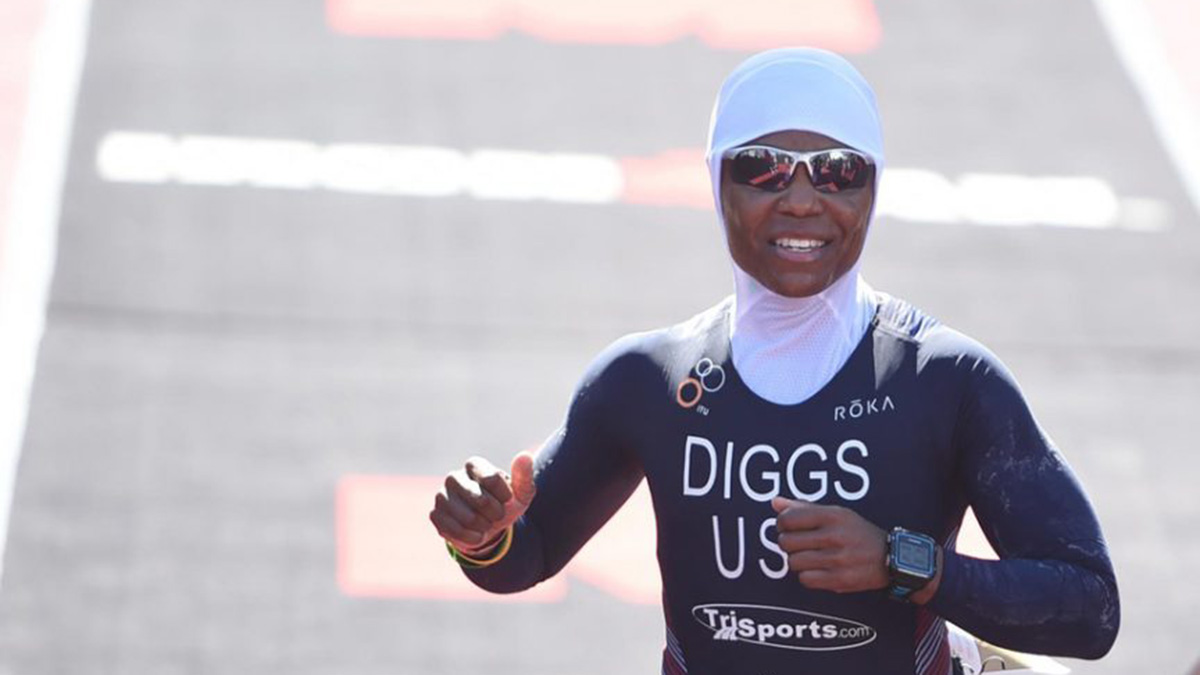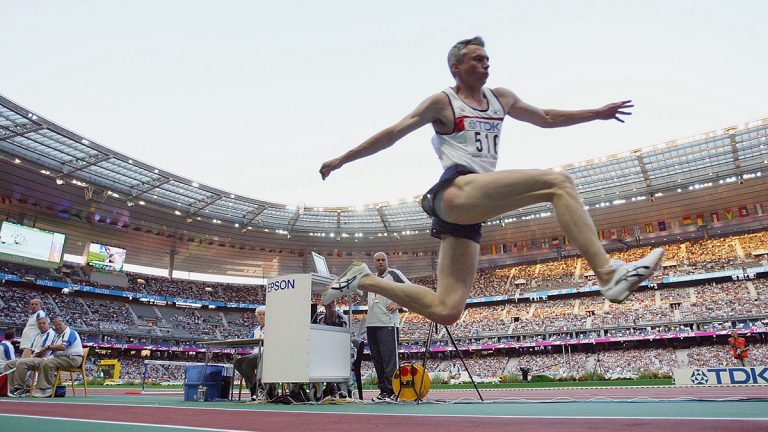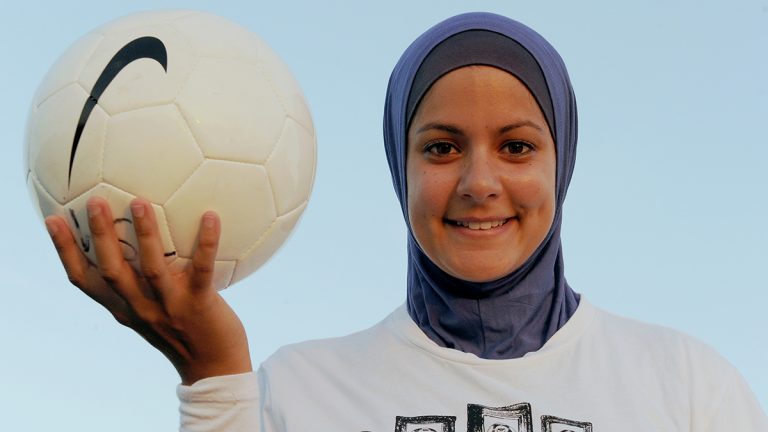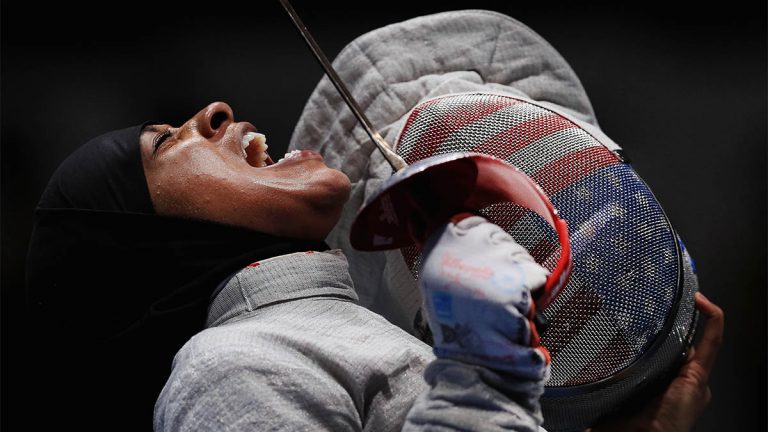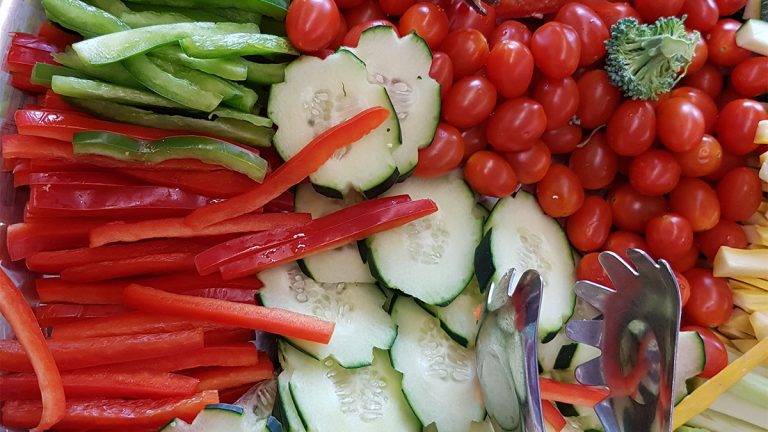Ramadan puts elite athlete training regimen to the test
For the better part of eight seasons, Hamza Abdullah played defensive back in the NFL. In each one of those seasons, thanks to the vagaries of the Islamic lunar calendar (which is roughly 10 or 11 days shorter than the solar year), the Muslim holy month of Ramadan fell either during the season or during training camp. Abdullah is a devout Muslim, which means he gives up both food and water during the sunlight hours of Ramadan. This was not an easy thing for a professional athlete to deal with, particularly during the sweaty grind of August two-a-days or the concentrated intensity of a three-hour game.
Saudi Arabia and other Muslim nations, like Indonesia, declared Ramadan would not begin Wednesday but will most likely begin Thursday. In 2019, Ramadan began May 5.
But in a way, this personal deprivation also became an opportunity for both Hamza and his brother Husain, who played defensive back for the Chiefs and Vikings. Ramadan provided an opening for the Abdullahs to share their knowledge of a religion that is often misunderstood in America. And it’s also how Hamza Abdullah inadvertently convinced one of his teammates to stop eating bacon.
When Abdullah explained to his non-Muslim teammates what Ramadan was, and what he had to do, they often empathized even as they asked questions. And when some told him they wanted to offer some form of solidarity during that time, he would tell them, “Give up something you love.”
“It was always interesting,” Abdullah says. “Maybe they’d give up their cell phone, or their morning cup of coffee, or checking social media—or even social media in general.”
But for one teammate, the thing he loved was bacon. Abdullah, of course, mentioned to this teammate that Muslims generally abstain from pork for religious reasons, but for the teammate, it was more about exploring (and conquering) his own weaknesses. And to Abdullah’s surprise, it became a long-term commitment. Even now, says Abdullah, who stopped playing pro football after the 2011 season, that teammate told him doesn’t consume nearly as much bacon as he used to.
Now that he’s retired, Abdullah still views Ramadan — which begins May 15 this year — as an opportunity to educate and explain the tenets of his religion, and how it’s helped define who he is. So, too, does triathlete Khadijah Diggs, who races with her head covered in a hijab. “It’s a chance to show gratitude,” she says. “I’m literally a statistic. I’m a single mother, I’m a black woman, I had my children young, and I’m having the opportunity to do things most people never have a chance to do.”
Both Abdullah and Diggs are well aware of how difficult it can be for any Muslim—but particularly elite athletes, who rely on intense workouts and massive calorie counts in order to sustain those workouts — to keep up their training during that holy month. One year, when Abdullah was recovering from a concussion, he chose not to fast during Ramadan, and in the years when he did abstain from food and water during daylight hours, he adhered to severe nutritional proscriptions that allowed him to get through both training camp and games without endangering his health. But he doesn’t blame anyone else in his position if they choose not to fast.
“It’s important for Muslims who look at athletes as role models to not judge them based on if they’re fasting or not fasting,” says Abdullah, who published a memoir in 2016 about his transition from football. “Each one has an individual choice to make.”
https://www.facebook.com/trigammalete/videos/2083275491953679/
In fact, the very question of whether Muslim athletes should be granted an exemption from fasting (as those with health issues are, as per the dictate of the Quran, the holy text of Islam) is an ongoing quandary in the Muslim world and among Muslim clerics. In 2012, when the London Olympics took place during Ramadan, the Egyptian High Islamic Council issued a religious edict exempting athletes from fasting; in 2014, the World Cup knockout stage fell during Ramadan, and athletes had to make their own decisions on whether to fast or to make up for it at a later date, as the Quran permits for those who are traveling. (The 2018 men's World Cup began immediately after Ramadan ended, and Egypt’s team had a plan in place to monitor its athletes during pre-Cup training.)
And while certain studies have shown, perhaps not surprisingly, that fasting can affect the overarching skills of professional soccer players—and can increase injury rates—the overarching science is still relatively inconclusive. Certain athletes claim to have actually set personal records during Ramadan, and NBA Hall of Famer Hakeem Olajuwon famously stated that he felt “lighter, faster, much more mentally focused during Ramadan.”
Hamza Abdullah—who calls Olajuwon “the person we wanted to embody” when he and his brother were growing up—insists that there is something about the glorification of Islam within that period that motivated him in new and different ways. But it also required an extremely rigorous nutritional routine in order to reach that point.
“The biggest mistake people make is they don’t plan ahead,” says Dr. Anikar Chhabra, Director of Sports Medicine at Mayo Clinic Arizona who works with Arizona State’s athletics programs. While Chhabra hasn’t worked with any elite athletes who observe Ramadan, he has counseled a number of recreational athletes who are Muslim—and he thinks there are ways, at least on that level, to make it work for you rather than against you.
“If you maintain a strict and regimented schedule, your body can adjust to that pattern,” Chhabra says. “But it takes a certain special person to be able to do that.”
The key, Chhabra says, is recognizing that you may not be able to make significant gains during Ramadan, particularly if you’re involved in a sport that requires aerobic fitness. Instead, you should focus on less taxing muscle-building exercises, and on maintaining your current level of fitness. Where many observant Muslims go wrong, he says, is that they break their fast at night by eating fatty or sugary foods, since they figure they’ve got room for the extra calories. Because of that, Chhabra has seen some patients actually gain weight during Ramadan.
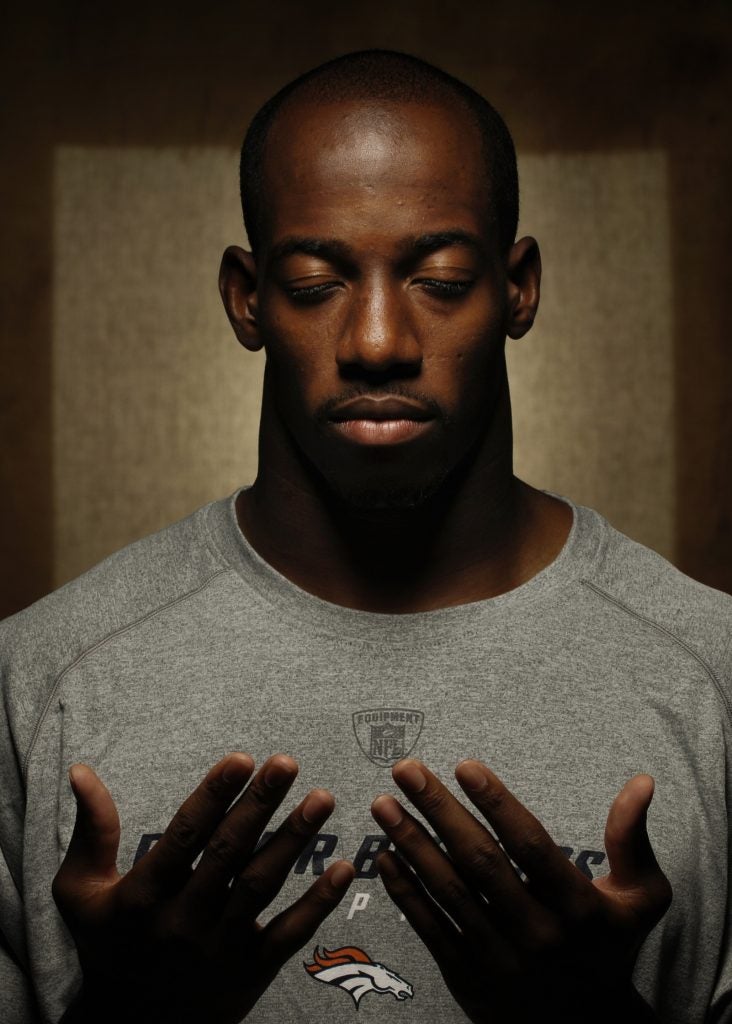
Of course, for pro athletes who are in the midst of training and competition, they need to be almost militantly regimented in their approach.
“At first I didn’t know what to do,” Diggs says. “But I’ve modified it over the years. Now I focus on high protein and good fat to reduce muscle breakdown, and on shorter workouts.”
How did Abdullah do it? It began at night, when those eating and drinking restrictions were lifted. Beyond the evening meal, he focused on hydration, by drinking half of his body weight in ounces of water. In Abdullah’s case, he weighed 220 pounds, so that meant 110 ounces per night between Iftar (the evening meal that breaks the Ramadan fast each day) and Sahur (the pre-dawn meal). He was careful to sip that water rather than guzzle it—and when he inevitably got up in the middle of the night to go to the bathroom, he used that time to make himself a protein shake and eat a banana.
He also made sure to eat healthy when breaking his fast each day, by consuming fruits and vegetables and lean protein like egg whites and turkey sausage, with some toast and honey mixed in. It helped, too, that both Hamza Abdullah and his brother were able to rely on their trainers and coaches to assist them—and the more they told their support staff about Ramadan, the more they were able to tailor their nutritional plan. (The brothers were, for instance, able to wet their lips with water during practices and games, as long as they didn’t drink it.)
There will still be times, Hamza Abdullah says, when you’ll need to back off. But there are also times when you might surprise yourself. In 2016, Diggs ran a sprint triathlon in Georgia during Ramadan; it was an overcast day and the running portion was only a 5K, and while she went in “feeling kind of droopy,” at some point she looked around and realized she was the only female in her age group nearing the finish line—she finished third overall among women.
“For me,” Diggs says, “it gives me focus. It inspires me. It helps me to focus on being grateful.”
Michael Weinreb is a freelance writer for several outlets, and is working on a book about football as it relates to the evolution of American culture.
Related Articles
For some religious athletes, competing isn't the highest priority

